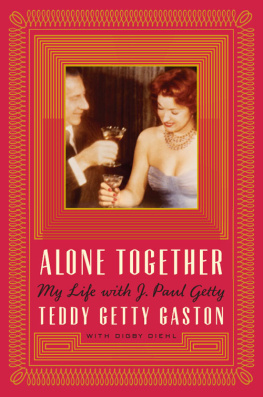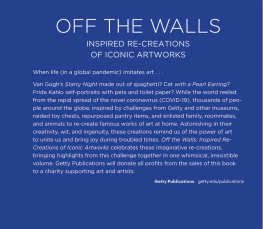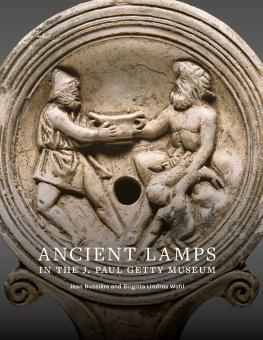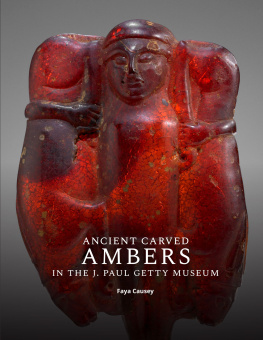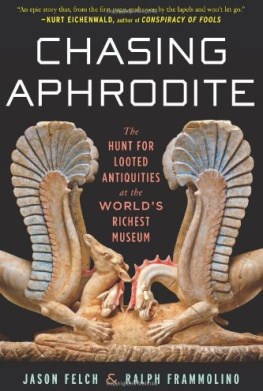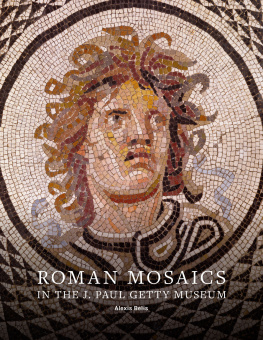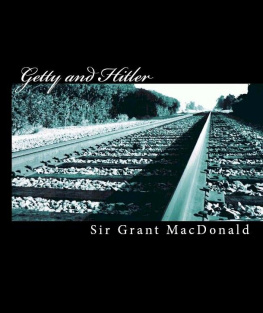I dedicate this book to
my beloved daughter, Gigi, who came into my life in
my darkest hour and has been a lighthouse of hope;
my son, Timmy, whose spirit has never left me;
and my treasured friend and stepson,
the talented composer Gordon Getty
This above all: to thine own self be true,
And it must follow, as the night the day,
Thou canst not then be false to any man
POLONIUS IN HAMLET , WILLIAM SHAKESPEARE
CONTENTS
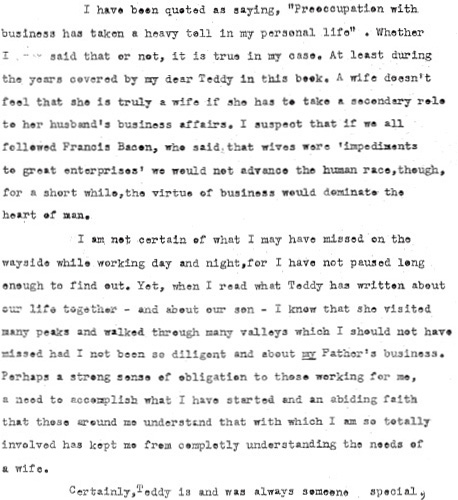
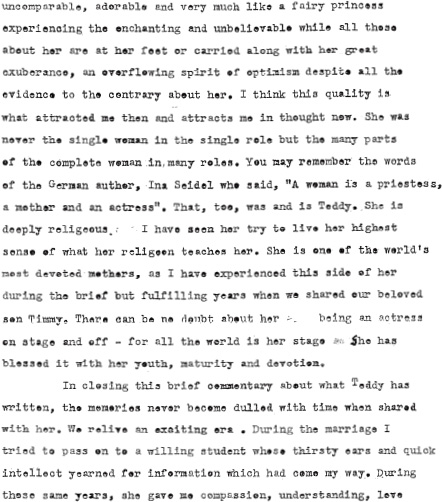
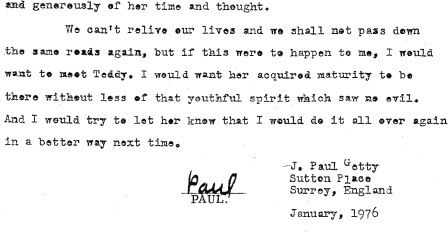
I n May of 1935, I opened at the New Yorker, one of the smartest little dinner clubs in the city, located in a fine old house on East 51st Street. I can still remember walking out into the spotlight and singing some of that eras most beloved songsNight and Day, Smoke Gets in Your Eyes, Body and Soul, and Alone Together. Although I had been on Broadway twice, Id never had the chance to sing as part of a floor show and I loved it.
One night, just as the lights dimmed and I was to go on for the second show, there was a commotion downstairs. Minutes later a group swept up the spiral staircase and was ushered to a ringside table. By their laughter I recognized Betzi and Jeannie, my two dearest friends. Fred, Betzis husband, had to be there as well, but who else was with them? It was too dark to see.
When I finished singing and the applause died down, I made my way over to their table. Three men stood up. In the half-light, I saw my brother Ware, Fred, and a man I had never seen before. Teddy! Betzi said excitedly, blowing me a kiss. This is Paul, my friend from California.
I found myself looking into the bluest eyes of an immensely charming mantall, slender, with sandy hair. Hello, Teddy, he said. What a beautiful voice you have! Alone Together is one of my favorites.
Thanks, mine too! I replied.
At that very moment, the orchestra started playing. Paul had been holding out a chair for me, but before I could sit down, he grabbed my hand. Lets dance, he said. In seconds I was in his arms, and we were dancing. He held me too close, but it was the beguine, music that made it seem right. I closed my eyes and let my body follow his. We moved as one to the beat of the drums. He was a fabulous dancer, but it ended too soon and then we were back at the table.
Sitting there in the semi-dark, sipping champagne, Paul smiled and said, Youre very beautiful, Teddy, and your voice is, too. I love the quality of it. I looked up and saw he was studying me. You know, he went on, you should study opera. Youd be a great Carmen, or Tosca.
At these words, I trembled. Although he had no way of knowing, it was my ambition to one day sing in concerts and the opera. I sat there amazed at this stranger who, after hearing me sing only once, was saying exactly what my teacher, Gene Berton, had been telling me. Intrigued by the sincerity in his warm, deep voice, I looked more closely at his hands. They were very masculine, but they were also artistic and expressive. Could he be a conductor? A composer? A critic?
And what do you do, Paul? I asked.
Hes in oil, Betzi cut in.
Oil? What show is that? I asked. Everyone started to laugh. Of course! I said. I felt like a fool.
W hen I was a little girl, my mother had a marvelous interior decorator, Anna Della Winslow, who not only had furnished my grandparents magnificent duplex at 44 West 77th Street in New York City, opposite the Museum of Natural History, but shed also redone their summer home, Thorncroft, in Vineyard Haven, Massachusetts. And then she helped my mother put her lovely things in our home in Belle Haven, Greenwich, Connecticut.
Annie, as we children called her, was born in Sweden, but was as American as apple pie. She loved doing for others, had great taste, adored the theater, and knew everyone who was anyone in or out of the theater and art worlds.
Annie kept an office in a boutique on the ground floor of the Great Northern Hotel on 57th Street, close to the famous Russian Tea Room, near Carnegie Hall. Id always go along when Mother had an appointment with her. Inevitably, wed have lunch at that famous tearoom, where Annie would hold court. I could hardly eat, it was so exciting to meet so many great artists from the concert and opera world... and they all loved Annie.
In 1924, when I was eleven years old, Stravinsky stopped at our table, kissed Annies hand, and wouldnt let go. Another time, the great contralto Marguerite dAlvarez, all two hundred pounds of her, swept in and, after embracing Annie, Mother, and me, promptly sat down and ordered a luncheon large enough for two... completely forgetting those waiting for her at the next table. Once, the beautiful soprano Marguerite Namara came by for a moment, swathed in furs and Chanel, looking so romantic; every man in the restaurant was staring at her. Dear God , I thought, I hope when I grow up, I can be as fascinating . Of course, I hadnt realized that not only was she a great beauty, but she also had a voice that enthralled everyone.
I had a voice, too, even as a child, and loved to sing. But I was far from beautiful or glamorous. In fact, I felt ugly. I figured I had a lot of work ahead of me if I ever expected to sing on any stage and be like Namara. But this was my dream.
I was still young when my parents divorced, which meant that I never really knew my father, Walter Morris Lytton. After the divorce, he stayed in Chicago, where he was an architect, so I didnt see him often enough to know him. My mother met Frank J. Lynch, whod been a friend of my fathers, when I was five. I knew him first as Uncle Frank. He was handsome, with blue eyes and great charm. When he married Mother, he became my stepfather, but I called him Dad, and he adopted Ware and me. The two of us took his last name. We moved back east and settled in Greenwich, Connecticut. Henry, our oldest brother, remained Henry Lytton. He was always very serious and straitlaced. He didnt approve of the divorce, but then again, Henry didnt approve of a lot of things. A lot of the time, that included me.
While waiting for the Belle Haven house to be finished, our family moved into a suite at the Greenwich Country Club. Saturday nights, when they held dinner dances, I would gulp down my supper and ask to be excused. Then I would stand near the orchestra and sing along with them, while Mother and Dad danced by. Sometimes couples would stop just to listen to me. Thats when I knew in my heart I could, if I tried, have a career. That was so very important in my mind.
When we moved into the Belle Haven house, Ware went to Brunswick High, Henry was off to Yale, and I went to the Greenwich Academy. By this time, I had two younger sisters, Nancy and Barbara (Bobby). I was not quite a teenager when they were born. They were adorable... blond, blue-eyed, and bewitching. I loved them as babies, and still do. They were and still are my whole, not half, sisters.
I practiced singing every chance I could. Many nights Mother would play the piano after dinner, and Ware and I would stand beside her and sing. Sometimes my little sisters would tiptoe down the stairs and peek at us through the rails of the banister, until their nanny scooted them off to bed.
This should have been the perfect life for Mom and Dad. They had it allgood friends, a great social life, and five fairly well-behaved children. But something was wrong. I couldnt tell my mom, because it was about Dad. For years, my situation at home had been difficult. I figured his drinking made him do what he did to me, and like most abused children of that era, I remained silent. Singing wasnt just a career ambition for me. It was something to look forward to, a way out of a bad situation.

